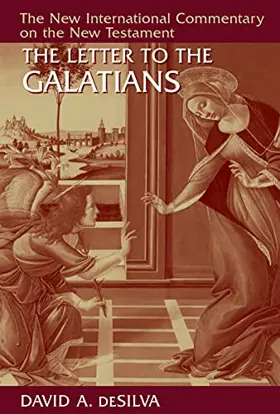

The Letter to the Galatians
in New International Commentary on the New Testament
Pages
622
Publisher
Eerdmans
Published
9/30/2018
ISBN-13
9780802830555
Writing a commentary on Galatians is a daunting task. Despite its relative brevity, this Pauline letter raises a number of foundational theological issues, and it has played a vital role in shaping Christian thought and practice over the centuries.
In this replacement of Ronald Y. K. Fung’s 1988 New International Commentary volume, David deSilva ably rises to the challenge, providing a coherent account of Galatians as a piece of strategically crafted communication that addresses both the immediate pastoral challenges facing Paul’s converts in Galatia and the underlying questions that gave rise to them.
Paying careful attention to the history, philology, and theology of the letter, and interacting with a wealth of secondary literature on both Galatians and the rest of the Pauline corpus, deSilva’s exegetically sound commentary will serve as an essential resource for pastors and theological students.
In this replacement of Ronald Y. K. Fung’s 1988 New International Commentary volume, David deSilva ably rises to the challenge, providing a coherent account of Galatians as a piece of strategically crafted communication that addresses both the immediate pastoral challenges facing Paul’s converts in Galatia and the underlying questions that gave rise to them.
Paying careful attention to the history, philology, and theology of the letter, and interacting with a wealth of secondary literature on both Galatians and the rest of the Pauline corpus, deSilva’s exegetically sound commentary will serve as an essential resource for pastors and theological students.
Collections
This book appears in the following featured collections.
- Women and BIPOC by Jamie Davies
- Recommended New Testament Commentaries for Evangelical Pastors by Thomas R. Schreiner
Reviews
This is an excellent contribution to the highly regarded NICNT series. DeSilva shows himself to be a careful exegete, abreast on recent scholarly debate, while still managing to deliver a coherent exposition of the letter's theological significance that will prove helpful for those preparing to preach on the text of Galatians. While the 100-page introduction is, in my opinion, a bit excessive for a book the size of Galatians, deSilva is nevertheless to be commended for his thorough engagement with key issues in contemporary scholarship. A unique feature of the commentary is the author's emphasis on tracing the rhetorical strategy and force of Paul's argument, which leads to many insights as deSilva tracks Paul's flow of thought within individual paragraphs and across the epistle as a whole.
This commentary offers one of the most up-to-date discussion of the key exegetical issues that scholars discuss in the study of Galatians. He is a fair-minded and well-balanced scholar. deSilva also wrote the Baylor Handbook on the Greek New Testament for Galatians
[Full Review]
Outstanding piece of scholarship from an author who is able to balance various perspectives, weigh them graciously, and present his own take clearly and decisively. An extensive introduction unpacks all the difficult questions of date and recipients (e.g. North Galatia vs. South Galatia). The exposition then follows the standard of the NICNT under the editorial leadership of Fee and Green which is more in depth that previous volumes during the time when FF Bruce was editor. DeSilva is able to retain the pastoral relevance of the older volumes, while expanding the scholarly aspects, without getting lost in the weeds. For example, much of the extensive discussion of subjective vs. objective genitives in 2:16 is moved to an excursus, as is much of the discussion of Paul's use of "works of the law". Much of the interaction with secondary sources is in the footnotes so as to not bog down the exposition. So this commentary can be easily navigated by a pastor looking for specific insights/clarifications, or by scholars doing more extensive study. DeSilva largely sides with the traditional protestant readings, while graciously engaging with the New Perspective. Overall a great commentary. Even with the vast numbers of commentaries on Galatians by outstanding scholars, this one manages to stand out and be relevant and worth adding to the collection alongside giants (Bruce, Longenecker, Dunn, Fee, etc).
This is a brand new commentary in all respects with a 100 page introduction. DeSilva definitely keeps up the standard of this series.


